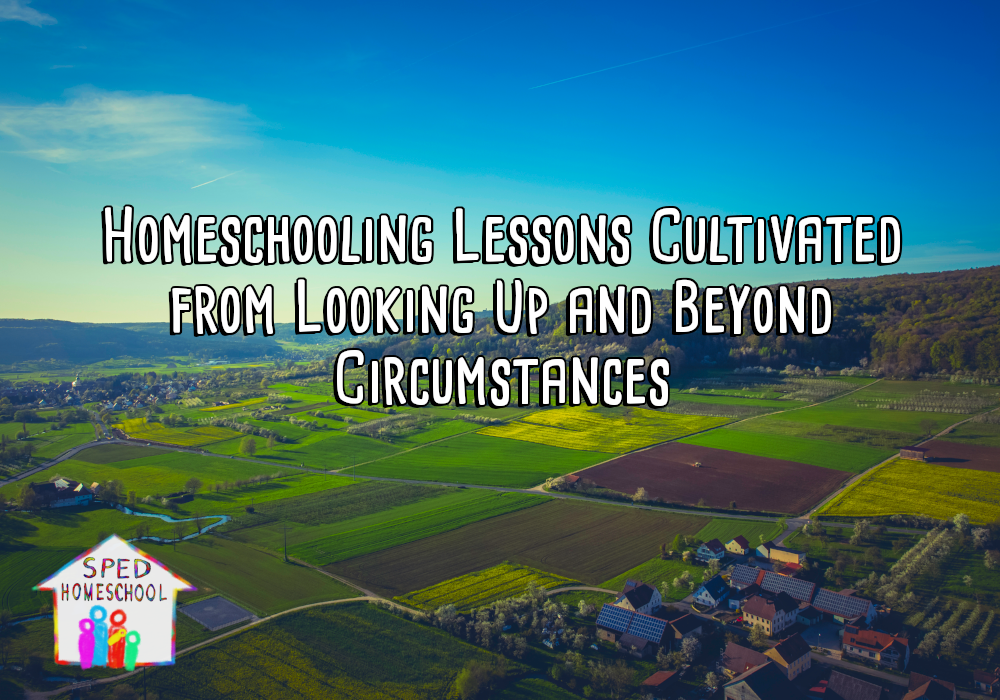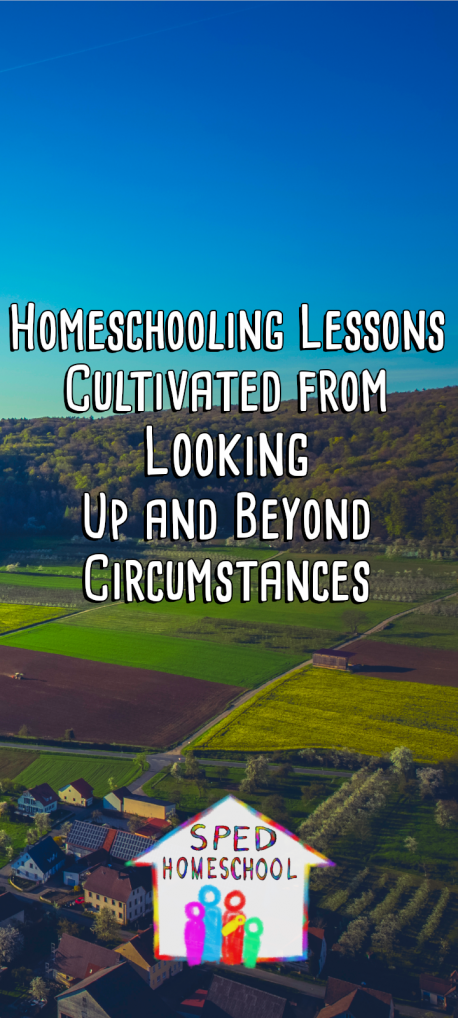
How NOT to Transition
I wish I could say I was calm, cool, and collected when I transitioned my oldest into high school, but I wasn’t. Instead, I was a massive bundle of nerves.
To make matters worse, in my pursuit to try to turn my frenzied state into a systematic approach for the upcoming transition, I signed up to attend a “How to Homeschool High School” workshop for typical students. I subsequently left that full-day seminar almost in tears because I felt the outline I had been given to follow was a near impossible task to require from my son.
Needless to say, I have made it through the high school years now with two struggling learners and am on the home stretch in homeschooling my youngest who challenges me on the other end of the spectrum as a gifted learner.
Over the years, I have learned a lot of lessons about what is really important to know when making a transition into high school for an atypical student and what you need to throw out the window OR put off until a later day so you don’t lose your mind.
Below are my biggest transitioning tips I want to pass along so you don’t have to make the same mistakes I made.
10 Tips for Making Your Homeschool Transition to High School Successful
1 – Start with the Right Perspective and Make a Preliminary Plan
To start out your 1st year of homeschooling high school, in a much less stressful state than I did, here are 5 perspective setting points to guide you.
- Focus on where your child is at NOW, not where you wish they would have been when starting their high school transition.
- Develop GENERAL graduation expectations you and your spouse feel your student MUST accomplish before you will allow him/her to receive a diploma
- Include your student’s aspirations, skills, and interests in your plan.
- Don’t even look at putting together a transcript until the end of your 1st year. This time delay will allow you to get a better handle on what pace your child can keep, and it will put a lot less stress on both of you as you during this transition year.
- Each year focus on 3 main goals and make those goals measurable and relative to the items you have determined above in your preliminary plan. Fill in with other classes and learning activities once you feel your student is making progress on these critical goals.
2 – Take One Year at a Time
It would be wonderful if we and our children had a clear-cut idea of where their lives are headed once they transition out of high school, but very few do. Instead of setting your plan up for failure by laying out a 4-year transition plan before you start your first year of homeschooling high school, it is best to write your plan one year at a time with a projected outcome you can tweak along the way.
I would also warn against not having a plan at all. Check out this short video for a bit more information on how to go about creating a 4-year transition plan one year at a time, while still maintaining a focus on your student’s education. This video will take you through how I took one year at a time in teaching my oldest child.
Homeschool High School Plans
3 – Develop Your Whole Child Through the Process
Too often the high school years get so overloaded with academics, we sometimes forget how important the non-academic parts of our student’s education are. Teaching a young adult how to cook, clean, do yard work, maintain a budget, develop their own faith life, drive, work with other people, and so many other adulting life skills will round out your student for everything life will require of them after they graduate.
4 – Follow the Checklist
We at SPED Homeschool have developed a SPED Homeschool High School checklist to help parents easily remember all the important things to keep in mind or know when homeschooling a student with special educational needs through high school.
5 – School However Long It Takes
High school for many students with special needs or learning disabilities goes beyond their 18th birthday. In most states, you can homeschool your student as long as you deem necessary for their transition into post-high school life. You will want to check with your state homeschool laws or HSLDA to ensure this is the case for your state, but also keep in mind that the IDEA allows for students to receive special education services up to age 21 (22 in some states), so many states allow the same at least for homeschooled students.
To further encourage you on this point, I suggest watching this video entitled “Is 18 the Magical Graduation Age?”
Is 18 the Magical Graduation Age?
6 – Don’t Be Afraid to be Creative
One thing too many parents do without even realizing it is move towards a more formal approach to education when their student enters their high school years. Just because high school is taught in traditional schools with a more compartmentalized approach, that doesn’t mean you have to force your homeschool to mimic a traditional school for your student to receive an adequate education.
I used unit studies all the way through high school with my oldest child, and doing so offered him the hands-on approach he needed to stay engaged with his learning. If you want to find out more about how to homeschool high school using unit studies, watch this video.
Unit Studies in High School
7 – Don’t Let the Transcript Hold You Captive
The high school years can be a great time for your student to discover what they love to do and what they don’t. Taking a less rigid approach to homeschooling in high school will allow your student to learn some new skills without feeling like a slave to them if they end up not being his cup or tea. At the end of the year, it is much easier to clump a series of related learning activities into a creatively labeled class instead of forcing your student through an entire year of learning a particular aspect of a subject he lost interest in back in October.
8 – Derailments Happen
In some cases, things happen during your student’s schooling career that keeps her from obtaining all the plans you had hoped she would achieve during her homeschool high school career. When this happens you must remember this derailment doesn’t mean you have failed your child or her future will be bleak because her education has been derailed.
I say this all calmly now, but when my second oldest told me he was done with school at age 16, I was anything but calm. To read more about that story and how God has been working out his plan through that derailment, read my article “When Your Student Derails Your Homeschool High School Plan.”
9 – Keep the Bigger Picture Always in Front of You
When you start to stress, take a step back and make sure you are not stressing over the small stuff. Pray, ask God for a renewed perspective, and remember to give the most attention to helping your student achieve his main three yearly goals. The rest will fall into place when you keep your focus and trust in God to help you through each step of these homeschooling years.
10 – Stay Connected
You can’t do this alone because it is too easy to think you are the only one struggling to teach your student day in and day out. You need fellowship! The SPED Homeschool Tribes are a great way to connect with other parents who understand what it’s like in your homeschool because they live out the same scenarios in theirs.
If you follow these 10 tips you will be able to transition into these wonderful years with your student much more gracefully than I did. I have to say these were my favorite years of homeschooling my boys because I was front and center in their lives as they moved from being children to adults. I pray your years ahead will be equally blessed as you persevere forward into your own homeschooling high school years.
Did you benefit from this article?
Would you consider a small donation to support the ongoing work of SPED Homeschool?
Click Here to Donate Today









